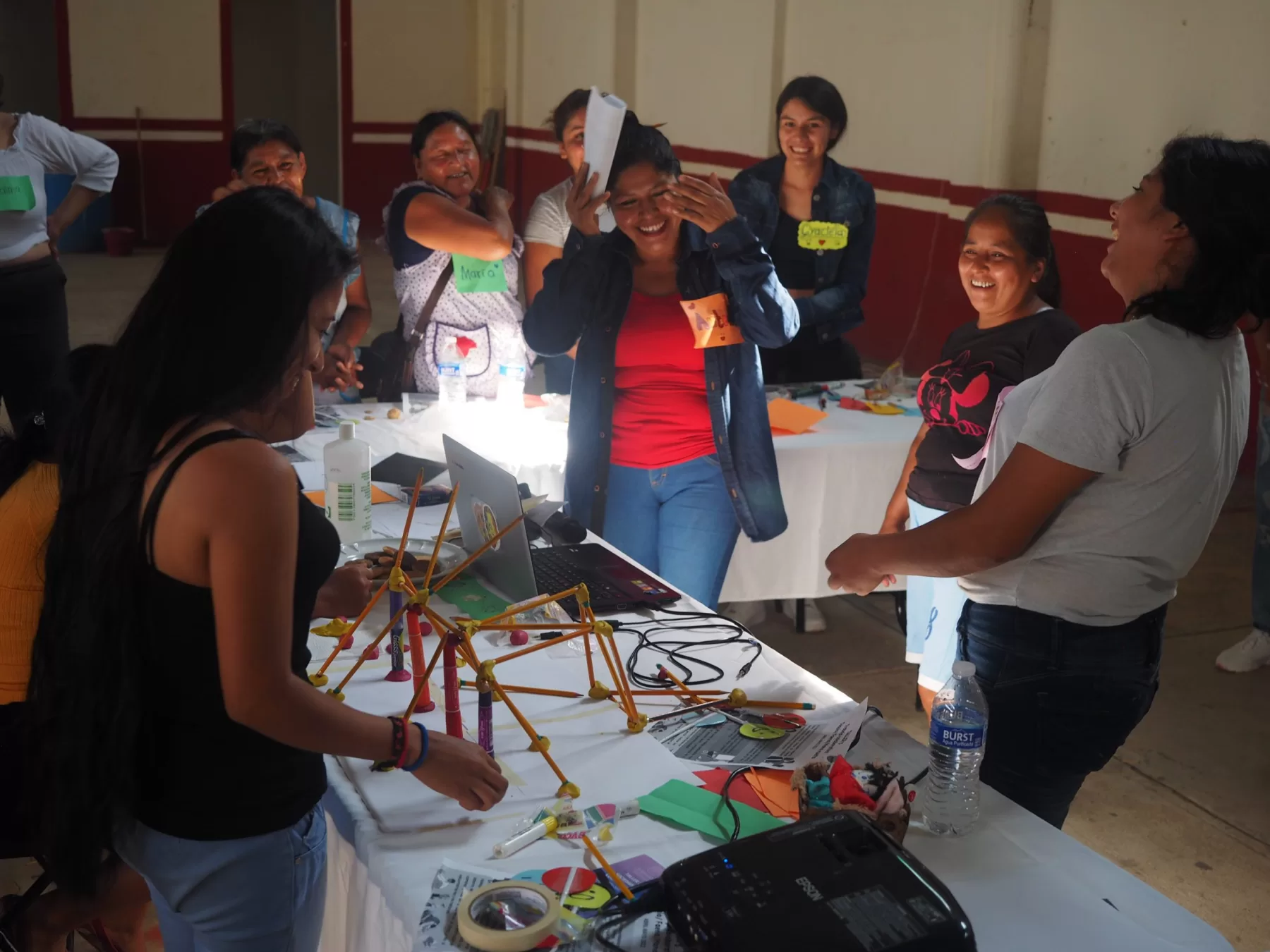
Our Approach
PSYDEH’s work is dedicated to the most pervasive contemporary social problems globally in rural, marginalized regions of Hidalgo, Mexico.
86%
of the region where we work lives below the national poverty line of $88 USD per month
95%
of women in our programs have reported facing discrimination and gender-based violence
0.01%
of families have computers, and most do not have access to consistent internet or phone signals

Rural Mexico often excludes women
from social and economic opportunities, defining women as full-time caretakers with restricted access to leave their homes or duties. Women report at least one family member having emigrated to urban Mexico or the USA - burdening families and weakening local economies and opportunities.
Inequality in Mexico
As reported by the Organisation for Economic Co-operation and Development (OECD), Mexico has one of the highest rates of inequality in the world.
Across Mexico, poverty is defined as a monthly salary of less than $88 USD for rural residents and less than $149 USD for urban residents, according to official figures.
According to the 2022 World Inequality Report, the top 1% of the population of Mexico accounts for 21% of the country’s wealth. On a whole, the country’s wealth gap is greater than in any other OECD member country.
On top of unequal income distribution, inequality in Mexico is also pervasive across education, labor, gender, health services, and social security. Over the last two decades, the 2022 World Inequality Report noted that instead of decreasing, inequality levels have notably increased.
Working with Women
As reported by the UN, gender inequality is one of the greatest barriers to human development and social progress. Investing in women generates opportunities and prosperity for generations to come— propelling forward a new regional paradigm.
A patriarchal culture dominates Mexico which propels social and economic inequality for women and girls. Women and girls are typically valued less than men and boys. Often women and girls are designated roles as passive beneficiaries and rarely breadwinners or community leaders. As a result, rural women often remain isolated at home, responsible for chores and children, and excluded from public life or decision-making processes in their communities. As it is often seen as an inappropriate role for women, men represent a majority of municipal government and local leadership positions.
On average, local women have completed no more than a third-grade education, while upwards of 30% are functionally illiterate. Literacy and education levels are notably higher in local men. 95% of women partners share that they have confronted gender-based violence in their private lives and faced discrimination as women in their public lives. Economic violence against women has also been reported to be as prevalent as physical violence.
Over the years, multiple women partners have been prohibited by male family members from attending PSYDEH workshops and training sessions.
On the whole, rigid gender roles in the region demand that women comply with power dynamics inside family systems. As such, a majority of women partners have faced challenges in training sessions speaking openly, making demands, leading decision-making processes, articulating needs, or putting anything, including themselves, before family obligations.
Our Focus Region
PSYDEH’s work is currently based in eastern Hidalgo, Mexico, in the Sierra Otomí-Tepehua-Nahua region, approximately 3-4 hours northeast of Mexico City and encompassing four majority-Indigenous municipalities: Huehuetla, San Bartolo Tutotepec, Tenango de Doria, and Acaxochitlán.
Across these four municipalities, the total population is nearly 100,000, with over 60% speaking Indigenous languages including Náhuatl, Otomí, and Tepehua.
Reliable economic data is hard to find. What is evident is that there is currently no major industry in the region and emigration is prevalent. Potential ecotourism attractions are plentiful throughout striking mountains and cloud forests, but the region has extremely limited infrastructure to attract or support a sizable tourism trade.
In Tenango de Doria, Huehuetla, and San Bartolo Tutotepec, internationally renowned traditional textiles drive what commerce exists locally. Regional coffee production is an industry slowly recuperating viability since prices dropped and cut regional production in the 1970s. Timber production and ranching, which both threaten a fragile cloud forest ecosystem, are primary industries to date.
Acaxochitlán, situated closer to more urban markets, is a regional distribution center for flowers, ornamental plants, apples, mushrooms, timber, and artisanal wool and embroidery. The municipalities’ capital (also Acaxochitlán) was named a Pueblo Mágico in 2023, part of an initiative led by Mexico’s Secretariat of Tourism.
Today throughout the region compounded factors perpetuate inequality including weak civic participation, persistent discrimination against women and Indigenous communities, and subsistence economies.
These forces and more drive political corruption, a weakened infrastructure, emigration, gender-based violence, low education levels, limited access to technology, and, ultimately, a lack of social and economic opportunity— especially for women.

